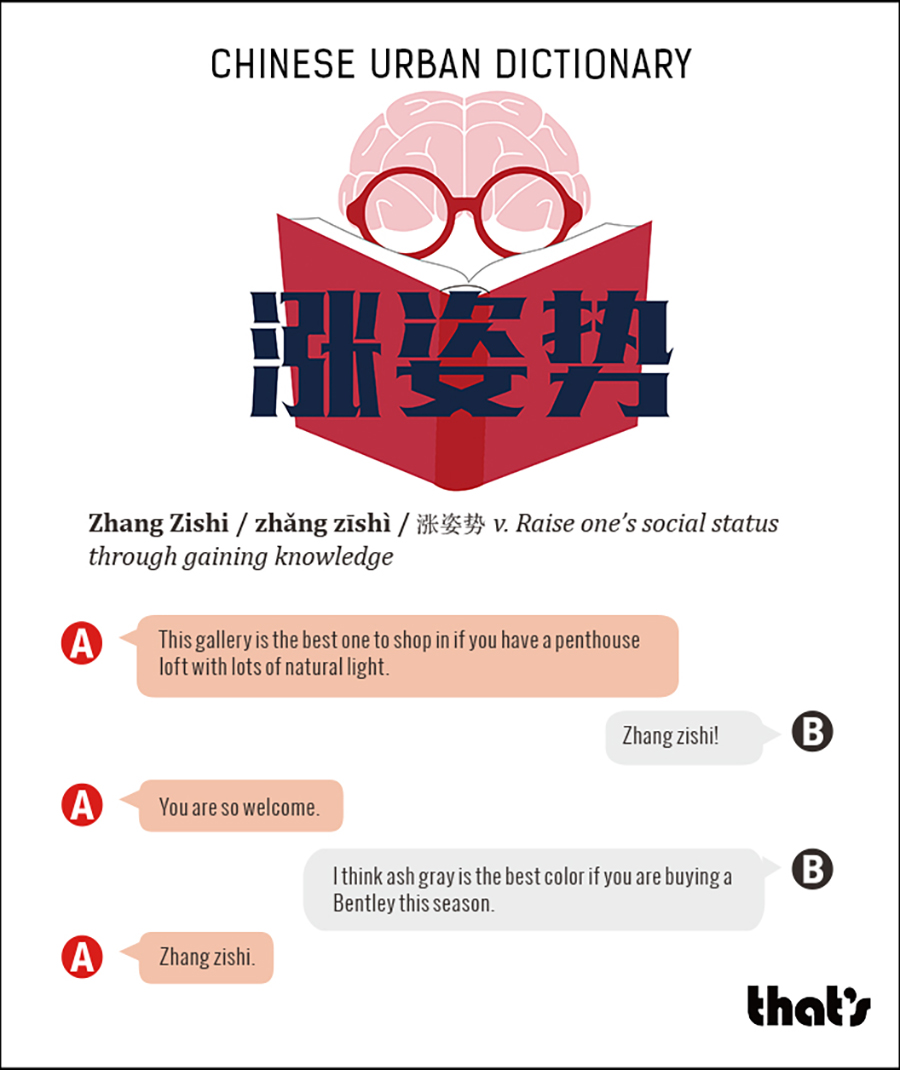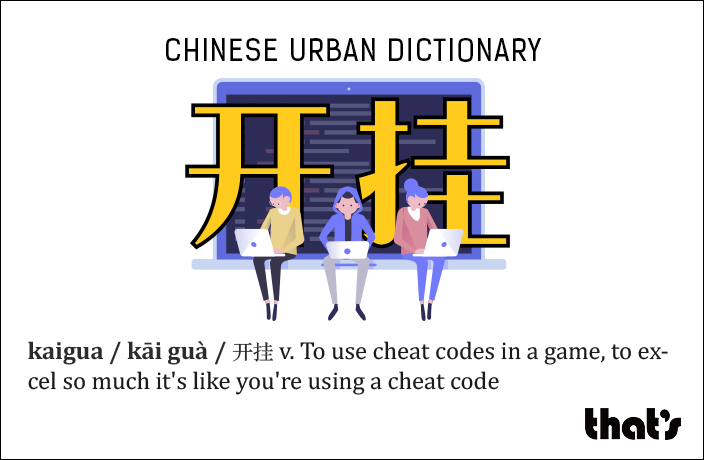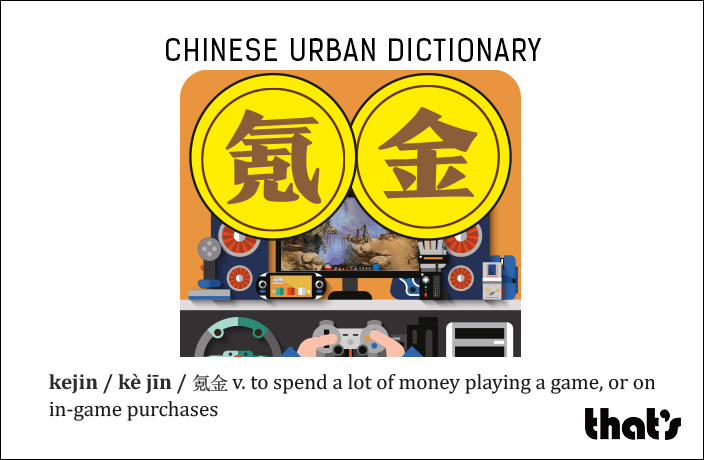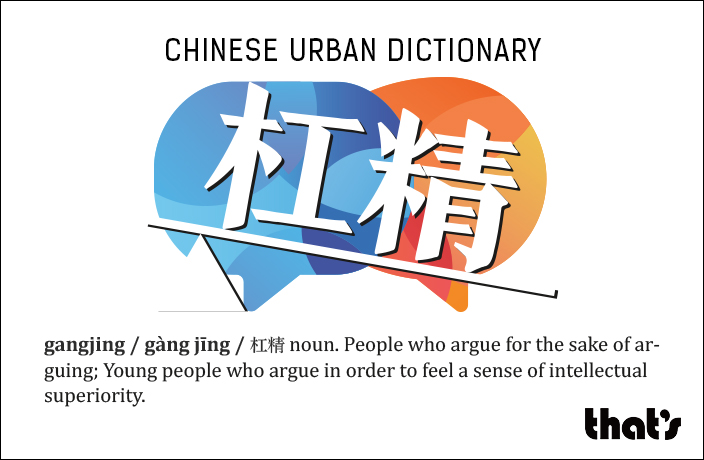Zhang Zishi / zhǎng zīshì / 涨姿势 v. Raise one’s social status through gaining knowledge.
A. This gallery is the best one to shop in if you have a penthouse loft with lots of natural light.
B. Zhang zishi!
A. You are so welcome.
B. I think ash gray is the best color if you are buying a Bentley this season.
A. Zhang zishi.
Knowledge is power – and so is social status. So it should be no surprise that the two go hand-in-hand.
One way to raise your social status is to drop little nuggets of knowledge at parties, suggesting to other guests that you must be leading an exciting life (in the way that monkeys might impress their peers by presenting them with marbles from exotic places).
Needless to say, parties are prime time for such activities. “The tourism industry in Iceland is such a bubble” or “the RMB10,000 sesame hot pot is so overrated” might do the job. And if you find yourself on the receiving end of such knowledge, all you need to say in response is a polite and concise “zhang zishi.”
As if to acknowledge the close link between knowledge (‘zhīshì’) in Chinese and social status (‘zīshì’), the two words sound very much alike in Chinese. Zhang zishi is the shorthand for ‘thank you for imparting a piece of knowledge that signifies high social status and subsequently raises my status, should I choose to pass on that knowledge at the next party – and as I acknowledge your superior status, we can now move on.’ Just say “zhang zishi” and you will gratify the speaker and swiftly put an end to a conversation that would otherwise never end.
As China’s middle and upper classes become more preoccupied with social status, traveling the world, bungee jumping and deep-sea diving (just to keep up a respectable WeChat Moments feed), zhang zishi has become a necessary social contract. It means that people can show off their exciting lives in an efficient fashion and steadily level-up on the totem pole.
So stop reading right now and go do something exotic. Then causally mention it in a social setting and get as many utterances of zhang zishi as possible. Remember, you are falling behind with every minute that you’re not moving forward.

Read more Chinese Urban Dictionary






















0 User Comments